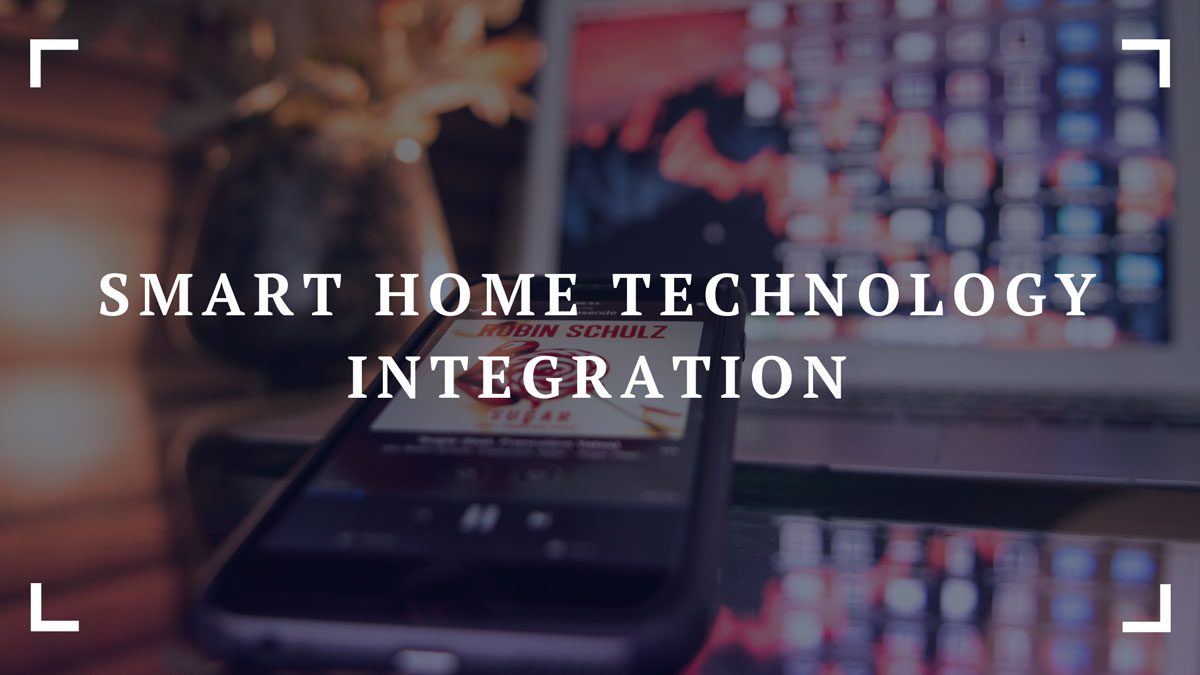In the ever-evolving technological landscape, our homes are rapidly becoming smarter and more connected. Smart home technology integration is revolutionizing the way we interact with our living spaces, offering convenience, energy efficiency, and enhanced security. By seamlessly blending cutting-edge devices and systems, homeowners can automate and streamline various aspects of their daily lives, creating a harmonious and intuitive living environment.

Intelligent Automation and Control
At the heart of smart home technology lies the ability to automate and control various elements of the home environment. Intelligent systems allow homeowners to effortlessly manage lighting, temperature, entertainment systems, and even household appliances with the touch of a button or through voice commands.
With smart lighting solutions, homeowners can program lights to turn on and off automatically based on schedules, occupancy, or ambient light levels, enhancing convenience and energy efficiency. Smart thermostats, on the other hand, can learn household routines and adjust temperatures accordingly, ensuring optimal comfort while minimizing energy consumption.
Integrated Home Entertainment and Multimedia
Smart home technology has revolutionized the way we experience entertainment and multimedia within our living spaces. Sophisticated home theater systems, seamlessly integrated with voice-controlled assistants and streaming platforms, offer an immersive and personalized viewing experience.
Multi-room audio systems allow homeowners to enjoy their favorite music throughout the entire home, with the ability to control playlists, volume levels, and speaker configurations from a centralized hub or mobile device.
While experiencing the convenience of a smart home, you can also enjoy the excitement of online gaming with 100 dollar free no deposit casino, creating an unrivaled combination of comfort and fun.
Intelligent Security and Surveillance
Ensuring the safety and security of our homes is a paramount concern, and smart home technology has introduced innovative solutions to address this need. Advanced security systems, equipped with smart cameras, motion sensors, and mobile notifications, provide homeowners with real-time monitoring and remote access capabilities.
Smart locks and video doorbells further enhance home security by allowing homeowners to grant or deny access remotely, while also receiving instant alerts and video recordings of visitors or potential intruders.
Energy Management and Eco-Friendly Living
Smart home technology plays a pivotal role in promoting energy efficiency and eco-friendly living. By integrating smart thermostats, lighting controls, and intelligent appliances, homeowners can significantly reduce their energy consumption and carbon footprint.
Smart thermostats can automatically adjust temperatures based on occupancy levels, while smart lighting systems can optimize illumination based on natural light conditions and usage patterns. Additionally, smart appliances can be programmed to operate during off-peak hours, minimizing energy costs and reducing strain on the power grid.
Aging in Place and Assisted Living
The integration of smart home technology has also opened up new possibilities for aging in place and assisted living. With voice-controlled assistants, automated lighting, and remote monitoring capabilities, elderly individuals or those with mobility issues can maintain independence and safety within their homes.
Smart home systems can be customized to address specific needs, such as medication reminders, emergency alerts, and remote caregiving support, providing peace of mind for both residents and their families.
Interoperability and Future Developments
As the smart home industry continues to evolve, interoperability and seamless integration between various devices and platforms have become increasingly important. Industry standards and open protocols are enabling different smart home technologies to communicate and work together seamlessly, creating a cohesive and user-friendly experience.
Looking ahead, the future of smart home technology integration holds exciting possibilities. Advancements in artificial intelligence, machine learning, and the Internet of Things (IoT) will further enhance the capabilities of smart home systems, enabling predictive automation, personalized recommendations, and proactive home management.
Conclusion
Smart home technology integration is transforming the way we live, offering unprecedented convenience, security, and energy efficiency within our daily living spaces. By automating and streamlining various aspects of our homes, from lighting and temperature control to entertainment and security, we can create truly intelligent environments tailored to our unique needs and preferences.
As technology continues to evolve, the integration of smart home solutions will become increasingly seamless and intuitive, empowering homeowners to embrace a future where our living spaces adapt to our lifestyles, fostering comfort, sustainability, and peace of mind.


